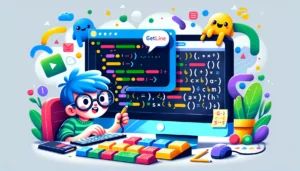When embarking on a journey to learn a new programming language, one of the common questions that arises is, “How long will it take?” This is particularly true for individuals interested in learning C++. So, let’s dive in!
Understanding the Basics
Before delving into the specifics of learning C++, it’s essential to grasp the foundation upon which C++ is built. C and C++ share a close relationship, with C++ being an evolution of the C programming language. Therefore, many beginners choose to learn C as a prerequisite before diving into C++. Familiarity with C equips learners with a solid understanding of fundamental programming concepts and a smooth transition into C++.
Exploring the Learning Timeline
The time it takes to learn C++ can vary depending on several factors, including prior programming experience, learning resources, dedication, and the complexity of the projects you aim to tackle. Let’s break down the learning timeline into different stages:
Stage 1: Understanding the Basics (2-3 Months)
During the initial stage, learners focus on understanding the fundamental concepts of C++ programming. This involves grasping variables, data types, control structures, loops, functions, and arrays. It’s crucial to practice coding exercises and small programs to reinforce these concepts.
Example:
#include <iostream>
using namespace std;
int main() {
int num1 = 10;
int num2 = 20;
int sum = num1 + num2;
cout << "The sum of " << num1 << " and " << num2 << " is: " << sum << endl;
return 0;
}
Stage 2: Object-Oriented Programming (3-4 Months)
In this stage, learners delve into the core aspect of C++ – object-oriented programming (OOP). Understanding classes, objects, inheritance, polymorphism, and encapsulation is essential to harness the power of C++. Hands-on practice through projects and exercises will solidify your understanding of these concepts.
Example:
#include <iostream>
using namespace std;
class Shape {
protected:
int width, height;
public:
void setDimensions(int w, int h) {
width = w;
height = h;
}
};
class Rectangle: public Shape {
public:
int getArea() {
return (width * height);
}
};
int main() {
Rectangle rect;
rect.setDimensions(5, 3);
cout << "Area of the rectangle: " << rect.getArea() << endl;
return 0;
}
Stage 3: Advanced Concepts and Projects (4-6 Months)
At this stage, learners explore more advanced topics such as templates, exceptions, file handling, and memory management. Additionally, working on larger projects that require multiple concepts and problem-solving skills helps solidify your command over C++.
Example:
#include <iostream>
#include <vector>
using namespace std;
int main() {
vector<int> numbers;
numbers.push_back(10);
numbers.push_back(20);
numbers.push_back(30);
numbers.push_back(40);
numbers.push_back(50);
cout << "Numbers in the vector: ";
for (int i = 0; i < numbers.size(); i++) {
cout << numbers[i] << " ";
}
return 0;
}
Stage 4: Mastery and Continuous Learning
Becoming a master in any programming language takes time and continuous learning. Even after completing the initial stages, there will always be new features, updates, and best practices to explore. Engaging with the C++ community, participating in open-source projects, and challenging yourself with complex projects will contribute to your ongoing growth as a C++ developer.
Conclusion
While estimating the exact time to learn C++ may vary from person to person, dedicating consistent effort and practice can yield significant progress within a reasonable timeframe. The stages outlined above provide a general roadmap for your C++ learning journey. Remember, learning is an iterative process, and embracing challenges will pave the way to mastering this powerful programming language. So, set your goals, stay persistent, and embark on your adventure to become a proficient C++ programmer!
FAQ
What are the best resources to learn C++?
There are several excellent resources to learn C++ such as online tutorials, books, and video courses.
Are there any prerequisites for learning C++?
While there are no strict prerequisites, having a basic understanding of programming concepts can be helpful in learning C++.
Can I learn C++ without any programming experience?
Yes, it is possible to learn C++ without any prior programming experience, but it may require more time and effort to grasp the concepts.
What are the challenges of learning C++?
Some challenges of learning C++ include understanding complex syntax, managing memory, and mastering object-oriented programming concepts.
How can I accelerate my learning process for C++?
You can accelerate your learning process by practicing regularly, working on projects, seeking guidance from experienced programmers, and utilizing interactive learning resources.
Is C++ a difficult programming language to master?
C++ can be challenging to master due to its complex syntax and extensive features. However, with dedication and practice, it can be conquered.
Can I learn C++ online for free?
Yes, there are many online platforms that offer free C++ tutorials, courses, and resources for self-learning.
What are the common misconceptions about learning C++?
Common misconceptions about learning C++ include the belief that it is too difficult for beginners and that it is only used for specific applications like game development.
Are there any recommended study techniques for learning C++?
Some recommended study techniques for learning C++ include breaking down complex concepts into smaller parts, hands-on coding practice, and seeking active engagement with the C++ community.
What are the career prospects after learning C++?
Learning C++ opens up various career prospects, including software engineering, computer programming, game development, and system administration.
Can I learn C++ on my own or should I join a coding bootcamp?
You can learn C++ on your own by utilizing online resources, books, and tutorials. Joining a coding bootcamp can provide structured guidance and mentorship, accelerating your learning process.
How does learning C++ compare to other programming languages?
Learning C++ can be more challenging compared to some other programming languages due to its complexity, but it also offers more power and control in return.
Are there any tips for staying motivated while learning C++?
Some tips for staying motivated while learning C++ include setting clear goals, breaking down tasks into manageable chunks, celebrating small victories, and finding a supportive learning community.
Follow us on Reddit for more insights and updates.





Comments (0)
Welcome to A*Help comments!
We’re all about debate and discussion at A*Help.
We value the diverse opinions of users, so you may find points of view that you don’t agree with. And that’s cool. However, there are certain things we’re not OK with: attempts to manipulate our data in any way, for example, or the posting of discriminative, offensive, hateful, or disparaging material.